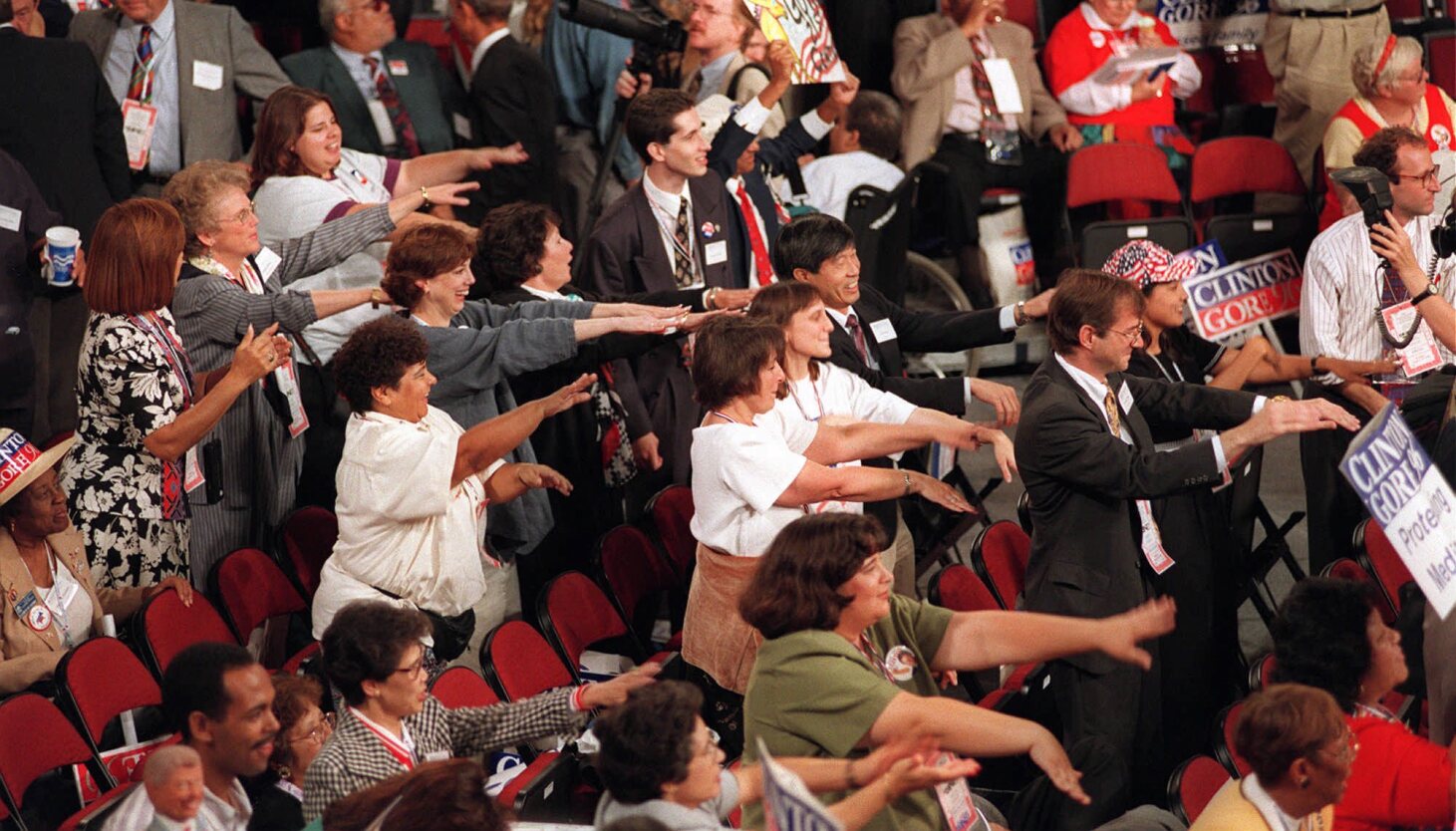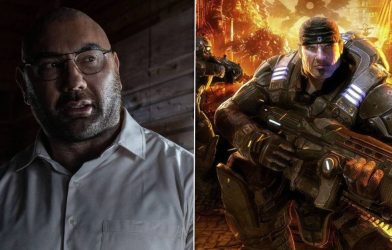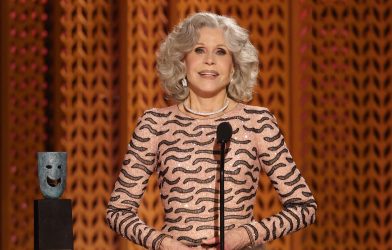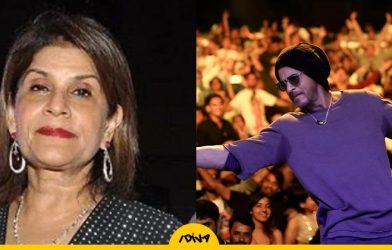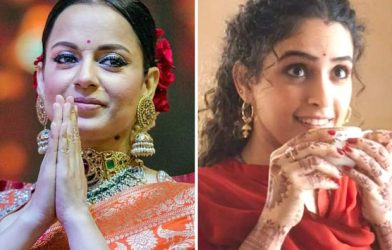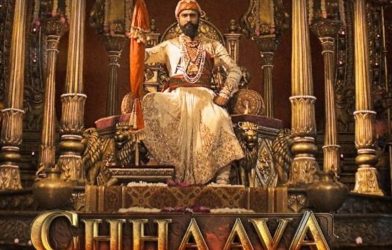With the 2024 Democratic National Convention just around the corner, let’s take a look back at some of the most memorable pop culture moments to spring from the last two Chicago DNCs.
1968
One of the most tumultuous president conventions in history yielded some extraordinary TV moments. CBS White House correspondent Dan Rather was caught in the middle of a scrum on the floor and was roughed up, telling anchor Walter Cronkite (who was stationed on a platform in the venue), “I’m sorry to be out of breath, but somebody belted me in the stomach,” to which Cronkite replied, “I think we got a bunch of THUGS here, Dan, if I may be permitted to say so. … Thank you Dan and pitching in there, despite every handicap that they can possibly put in our way from free flow of information.”
When Sen. Abraham Ribicoff gave a speech in favor of nominating George McGovern, he exclaimed, “With George McGovern as president of the United States, we wouldn’t have to have Gestapo tactics in the streets of Chicago … we wouldn’t have a National Guard [here]!” Cameras caught Mayor Richard J. Daley shouting expletives and insults at Ribicoff, and Ribicoff noting, “How hard it is … to accept the truth.”
* * *
April of 1969 marked the release of the debut studio album by a local rock band that initially called itself the Big Thing before changing its name to Chicago Transit Authority and then simply “Chicago.” Side four of the double album kicked off with “Prologue, August 29, 1968,” which incorporated audio of anti-war demonstrators chanting “The whole world is watching, the whole world is watching,” as they clashed with police outside the Conrad Hilton Hotel during the 1968 DNC.
* * *
The 1969-70 trial of the defendants accused of crossing state lines to incite a riot at the 1968 protests inspired books, stage plays, documentaries, TV specials and films, including writer-director Aaron Sorkin’s 2020 “The Trial of the Chicago 7,” which earned six Oscar nominations and earned four stars from this critic for the blending of poetic license with essential truths. Prior to the film’s release, Sorkin told me that for the protest scenes filmed in Chicago, “many of the [Chicago police officers} are being played by off-duty Chicago police officers, many of whom are the children of Chicago police officers who were there in 1968. … We had crowds marching down the street, chanting, ‘The whole world is watching.’ People who lived in Chicago their whole lives had to be thinking, ‘This can’t possibly be happening again.’ ”
* * *
Graham Nash’s 1971 single “Chicago/We Can Change the World” kicks off with the lyrics:
Though your brother’s bound and gagged
And they’ve chained him to a chair
Won’t you please come to Chicago
Just to sing
The first two lines are about Chicago Eight defendant Bobby Seale being bound and gagged in court by orders of Judge Julius Hoffman. (Seale was eventually tried separately.) Next comes a reference to an invitation extended to Crosby, Stills, Nash & Young to perform a benefit concert in Chicago for the defendants. Crosby and Nash agreed to do it, while Stills and Young did not, prompting Nash to issue this plea to his bandmates. (The concert never materialized.)
1996
In marked contrast to 1968, the 1996 DNC was essentially a re-coronation of President Bill Clinton, who was destined to defeat Bob Dole in a landslide. Highlights of the convention included a speech by the paralyzed actor Christopher Reeve on opening night, with Reeve speaking passionately about the Americans with Disabilities Act.
* * *
Another special moment was provided courtesy of the Broadway cast of the new smash sensation musical “Rent” flying to Chicago to perform “Seasons of Love.” Watch the grainy but still fantastic C-SPAN video of the performance and you can spot young, up-and-coming stars such as Anthony Rapp, Jesse L. Martin, Idina Menzel and Taye Diggs. Great stuff.
Going from the sublime to the ridiculous: You can also find video of delegates at the United Center dancing along with, that’s right, “Macarena.” We were even treated to the comedic stylings of Al Gore, who said, “This is some crowd. I’ve been watching you doing that Macarena on television. And if I could have your silence, I would like to demonstrate for you, the Al Gore version of the Macarena.” Gore then stood perfectly still, deadpan expression on his face, before saying, “Would you like to see it again?” Yes. You definitely had to be there.
* * *
There were some big, off-site parties in 1996, including Norman Lear’s People for the American Way bash at the Palmer House Hilton, with Bianca Jagger in attendance, and a party at Michael Jordan’s Restaurant honoring Bulls coach Phil Jackson and his former New York Knicks teammate, Sen. Bill Bradley. Still, the hottest ticket by far was the George magazine party hosted by John F. Kennedy Jr. at the Art Institute. The nature of my job has given me front-row (or at least upper deck) access to a myriad of star-studded events through the years, but rarely have I seen the kind of frenzy that surrounded Kennedy when he entered the jam-packed bash, with attendees including Oprah Winfrey, Kevin Costner, Chris Rock, Hillary and Chelsea Clinton, Aretha Franklin and Norman Mailer. (A highlight for me was chatting with the late great Clarence Williams III of “Mod Squad” and “Purple Rain.”)
Three years later, John F. Kennedy Jr. died in a plane crash. He was just 38. At the time I noted that of all the pop icons I’d seen making public appearances over the years, “there are three whose mere presence charged the atmosphere with such electric excitement that people around them would become downright giddy … Michael Jordan. Princess Diana. And John F. Kennedy Jr.” A quarter-century later, I’m not sure that list needs updating.

